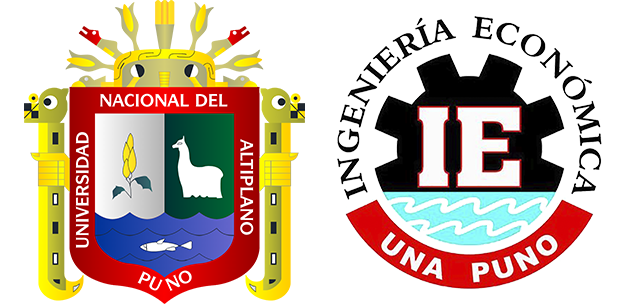Abuso de poder y riesgo de monopolio en el Sistema de Salud: análisis heterodoxo e ilustración empírica
DOI:
https://doi.org/10.26867/se.2025.v14i1.179Palabras clave:
Salud pública, política médica, abuso del poder, competencia, caridad, ONGResumen
Generalmente, se acepta que el potencial de abuso de poder es inherente a la medicina, especialmente bajo un sistema monopolístico. El caso de los médicos en la Alemania nazi proporciona un ejemplo aterrador de dicho abuso de poder. La historia ofrece ejemplos adicionales de graves abusos de poder por parte de entidades de salud gestionadas por el gobierno. En este artículo, primero analizamos el contexto histórico e institucional del comportamiento de los médicos en la Alemania nazi y luego procedemos a examinar casos de abuso de poder médico en otros países totalitarios. Posteriormente, analizamos algunas tendencias peligrosas en las democracias modernas. Si bien la medicina estatal tiene la capacidad de ofrecer soluciones efectivas en ciertos casos, no debemos pasar por alto los peligros potenciales del abuso de poder y la degradación de la calidad del servicio resultante del dominio estatal en la atención médica. Es cuestionable si las pautas éticas y la educación adecuada por sí solas pueden sustituir los medios institucionales para salvaguardar los derechos de los pacientes. Estos peligros deben analizarse cuidadosamente al determinar la política médica. Por ejemplo, el conocido problema de la asimetría de información entre médicos y pacientes puede mitigarse efectivamente en una sociedad libre con un mercado competitivo de atención médica.
Referencias
Ackerlof, G. (1970). The Market for Lemons: Qualitative Uncertainty and the Market Mechanism. Quart Journal of Economics, 1970; 84(3):488-500.
Anderson, M. (1986) The Unfinished Agenda: Essays on the Political Economy of Government Policy in Honour of Arthur Seldon. The Institute of Economic Affairs, London
Armentano D.T. (1986). Antitrust Policy: The Case for Repeal. Cato Institute, 1986.
Arrow, K. J. (1963). Uncertainty and the Welfare Economics of Medical Care. The American Economic Review, 53(5), 941–973. http://www.jstor.org/stable/1812044
Bajwa J., Munir U., Nori A., Williams B. (2021). Artificial intelligence in healthcare: transforming the practice of medicine. Future Healthcare Journal. Jul;8(2): e188-e194. https://doi.org/10.7861%2Ffhj.2021-0095
Boettke, P.; Haeffele-Balch, S.; Storr, V. (2016) Mainline Economics: Six Nobel Lectures in the Tradition of Adam Smith. Mercatus Center-George Mason University, Arlington.
Bonica A. (2014). Mapping the Ideological Marketplace. Amer J Polit Sci;58(2):367-386.
Bonnie R.J. (2002). Political Abuse of Psychiatry in the Soviet Union and in China: Complexities and Controversies. J Am Acad Psychiatry Law 2002;30:136–44.
Brennan, G.; Buchanan, J. (1985) The reason of rules. Constitutional Political Economy. Cambridge University Press, Cambridge.
Buchanan, J.; Tullock, G. (1962) The Calculus of Consent: Logical Foundations of Constitutional Democracy Ann Arbor: The University of Michigan Press.
Buck I.D. (2016). Furthering the Fiduciary Metaphor: The Duty of Providers to the Payers of Medicare. Calif Law Rev 2016;104(5):1043-1094.
Cameron JS, Hoffenberg R. (1999). The ethics of organ transplantation reconsidered: paid organ donation and the use of executed prisoners as donors. Kidney Int 1999;55:724–32.
Dai Shuping, Xu Lingzhong. (2015). China to stop using organs from executed prisoners for transplantations BMJ 2015;350. https://doi.org/10.1136/bmj.h239
De Soto, Hernando. (1989). The Other Path: The Invisible Revolution in the Third World. Harpercollins, 1989.
Downs, Anthony. (1957). An Economic Theory of Democracy. New York: Harper and Row.
DPRF – Directorate of the President of the Russian Federation. (2021). [online] Main Medical Department (in Russian). https://udprf.ru/content/glavnoe-medicinskoe-upravlenie .
Dulleck U., Kerschbamer R. (2006) On Doctors, Mechanics, and Computer Specialists: The Economics of Credence Goods. JEL 2006; 44(1):5-42.
Gaidar Yegor (2007). Collapse of an Empire. Lessons for Modern Russia. Brookings Institution Press. https://www.jstor.org/stable/10.7864/j.ctt4cg7d6.
Gallin S, Chelouche T, Reis S, et al.(2020). Cultivating awareness of the Holocaust in medicine, The Lancet;395(10221): 333-334. https://doi.org/10.1016/S0140-6736(19)32611-X .
Geloso, V., March, R.J. Rent seeking for madness: the political economy of mental asylums in the United States, 1870 to 1910. Public Choice 189, 375–404 (2021). https://doi.org/10.1007/s11127-021-00890-1.
Glaeser Edward L., Shleifer Andrei. (2003). The Rise of Regulatory State. Journal of Economic Literature Vol. XLI pp. 401-425.
Gore L.LP. (ed.), Yongnian Zheng (ed.). (2019). The Chinese Communist Party in Action: Consolidating Party Rule (China Policy Series) Routledge.
Green D. (1993). Reinventing Civil Society Rediscovery of Welfare without Politics Civitas Institute for the Study of Civil Society.
Gueorguiev Dimitar D. (2018). ‘Dictator’s Shadow: Chinese Elite Politics Under Xi Jinping’. China Perspectives 2018; 2018(1-2):17-26. https://doi.org/10.4000/chinaperspectives.7569.
Hammond-Browning N. (2017). When Doctors and Parents Don't Agree: The story of Charlie Gard. J Bioethic Inq, 14(4):461–468. doi:10.1007/s11673-017-9814-9.
Hayek v. Friedrich (1944). The Road to Serfdom. Chicago: Univ. Chicago Press.
Hayek v. Friedrich (1988). The Fatal Conceit: The Errors of Socialism. University of Chicago Press.
Hillman Harold & Nathanson Vivienne. (2001). Harvesting Organs from Recently Executed Prisoners. BMJ: British Med J 2001; 323(7323):1254.
Howard P.K. (1994). The Death of Common Sense: How Law Is Suffocating America. N.Y.: Random House.
Huerta de Soto, Jesus (1992). Socialismo, Cálculo Económico y Función Empresarial. Madrid: Unión Editorial.
Huerta de Soto, Jesus (2000). La Escuela Austriaca. Madrid: Unión Editorial
Institute for Quality and Efficiency in Health Care (IQEHC). (2015). Health care in Germany: The German health care system. https://www.ncbi.nlm.nih.gov/books/NBK298834/.
Jarausch K.H., Arminger G.(1989) The German Teaching Profession and Nazi Party Membership: A Demographic Logit Model. J. Interdisc. Hist.; 2:197-225, p. 201-202.
Jasay A. (1985). The State. Oxford: Blackwell Pub. https://oll.libertyfund.org/title/jasay-the-state.
Kater M.H. (1987). Hitler’s early doctors: Nazi physicians in pre-depression Germany. J. Mod. Hist.; 59(1):25–52.
Kater Michael H. (1983). The Nazi Party: A Social Profile of Members and Leaders, 1919–1945 Cambridge: Harvard University Press., p. 181.
Kirzner Israel M. (1973). Competition and Entrepreneurship. University of Chicago Press.
Leonard D.K., Bloom G., Hanson K., O’Farrel J., Spicer N. (2013) Institutional Solutions to the Asymmetric Information Problem Health and Development Services for the Poor. World Development 2013;48:71-87.
Leoni B. (1991). Freedom and the Law. Expanded 3rd edition, Indianapolis: Liberty Fund.
March, Raymond J. Geloso, Vincent. Gordon Tullock meets Phineas Gage: The political economy of lobotomies in the United States. Research Policy, Volume 49, Issue 1 , February 2020, 103872 https://doi.org/10.1016/j.respol.2019.103872.
MHG – Moscow Helsinki Group. (2004). Punitive psychiatry in Russia: The report on human rights violations in the Russian Federation during providing psychiatric care (in Russian). Moscow: The publishing house of the International Helsinki Federation for Human Rights; 2004. https://protivpytok.org/wp-content/uploads/2012/01/ps.pdf, pp 177-196; 337-344; 347-490.
Mitchell B. (2007). International Historical Statistics: Europe 1750-2005. London: Palgrave Macmillan;
Mises v., Ludwig (1944). Omnipotent Government: The Rise of the Total State and Total War. New Haven: Yale Univ. Press.
Mises v. Ludwig. (1949). Human Action: A Treatise on Economics. Yale University Press.
NBC News https://www.nbcnews.com/id/wbna46849651 2012.
Nice, Geoffrey QC, Martin Elliott, Andrew Khoo et al. (2020). The Independent Tribunal into Forced Organ Harvesting from Prisoners of Conscience in China. Judgement. 1 March 2020 https://chinatribunal.com/wp-content/uploads/2020/03/ChinaTribunal_JUDGMENT_1stMarch_2020.pdf.
Niskanen WA. (1971). Bureaucracy and representative government. Chicago: Aldine, Atherton.
Olasky M. (1994). The Tragedy of American Compassion. Regnery Publishing.
Pressman, J.D., 2002. Last Resort: Psychosurgery and the Limits of Medicine. Cambridge University Press.
Philipson Tomas J., Sun Eric. (2008). Is the Food and Drug Administration Safe and Effective? The Journal of Economic Perspectives, Vol. 22, No. 1 (Winter, 2008), pp. 85-102
Plant J.F. (2011). Carl J. Friedrich on Responsibility and Authority. Pub Adm Rev 2011;71(3):471-482. https://doi.org/10.1111/j.1540-6210.2011.02368.x.
Rajpurkar, P., Chen, E., Banerjee, O. et al. (2022). AI in health and medicine. Nature Medicine. 28, 31–38. https://doi.org/10.1038/s41591-021-01614-0.
Reis, SP., Wald HS, Weindling P. (2019). The Holocaust, medicine and becoming a physician: the crucial role of education. Isr J Health Pol Res;8(55). https://doi.org/10.1186/s13584-019-0327-3.
Rodwin, Victor G. (2003). The Health Care System Under French National Health Insurance: Lessons for Health Reform in the United States. Amer J Public Health; 93:31-37. DOI: 10.2105/ajph.93.1.31.
Romer, Paul (2015) Mathiness in the theory of economic growth. American Economic Review, 105(5): 89-93 DOI:10.1257/aer.p20151066
Rothbard, Murray. (2002). History of Money and Banking in the United States: The Colonial Era to World War II. Auburn, Alabama: The Ludwig von Mises Institute, 2002 (1st published).
Sánchez-Bayón, A. (2024a). Ortodoxia versus heterodoxias sobre la colonización del Oeste estadounidense por empresas religiosas e ideológicas. Carthaginensia, 40(77): 117-156. DOI: https://doi.org/10.62217/carth.457
Sánchez-Bayón, A. (2024b). Revitalización de la disputa del método en economía: revisión científica y docente. Encuentros Multidisciplinares, 76: 1-14
Sánchez-Bayón, Antonio. (2024c). Análisis neoinstitucional de la cuestión de género: paradoja y efectos indeseados. Dixi, 26(1): 1-43. DOI: https://doi.org/10.16925/2357-5891.2024.01.01
Sánchez-Bayón, Antonio (2024d). Análisis del género como bien público y su función de bienestar social: elección colectiva vs. elección pública. ATLANTIC REVIEW OF ECONOMICS – AROEC, 7(1): 1-31
Sánchez-Bayón, Antonio (2023a). Communist origin of American capitalism: cooperatives in the colonization of the West. REVESCO. Revista de Estudios Cooperativos, 144, e87973 (1-12). https://doi.org/10.5209/reve.87973.
Sánchez-Bayón, Antonio (2023b). Análisis jurídico-económico de la cuestión de género: costes, fallos y paradojas. Semestre Económico, 12(2), 54–77. https://doi.org/10.26867/se.2023.v12i2.152
Sánchez-Bayón, Antonio (2023c). Fallos estatales y paradojas sociales por el intervencionismo en cuestión de género. Procesos de Mercado. 20(2): 301-342. DOI: https://doi.org/10.52195/pm.v20i2.897
Sánchez-Bayón, A. (2022a) Gestión comparada de empresas colonizadoras del Oeste americano: una revisión heterodoxa. Retos Revista de Ciencias de la Administración y Economía, 12(24), pp. 138-156. https://doi.org/10.17163/ret.n24.2022.08.
Sánchez-Bayón, A. (2022b). De la Síntesis Neoclásica a la Síntesis Heterodoxa en la economía digital. Procesos de Mercado, 19(2): 277-306. https://doi.org/10.52195/pm.v19i2.818
Sánchez-Bayón, A. (2022c). ¿Crisis económica o economía en crisis? Relaciones ortodoxia-heterodoxia en la transición digital. Semestre Económico, 11(1): 54–73 doi: http://dx.doi.org/10.26867/se.2022.1.128
Sánchez-Bayón, A., A. Urbina, D., Alonso-Neira, M. Ángel, & Arpi, R. (2023). Problema del conocimiento económico: revitalización de la disputa del método, análisis heterodoxo y claves de innovación docente. Bajo Palabra, (34), 117–140. https://doi.org/10.15366/bp2023.34.006
Schneider Carl E. (2015). The Censor's Hand. The Misregulation of Human-Subject Research MIT Press. DOI: https://doi.org/10.7551/mitpress/9780262028912.001.0001.
Schork, N.J. (2019). Artificial Intelligence and Personalized Medicine. In: Von Hoff, D., Han, H. (eds) Precision Medicine in Cancer Therapy . Cancer Treatment and Research, vol 178. Springer, Cham. https://doi.org/10.1007/978-3-030-16391-4_11 .
Shirk S.L. (2018). China in Xi’s “New Era”: The Return to Personalistic Rule. Journal of Democracy;29(2):22-36.
Sparrow A. (2003). MPs 'asked to use aliases for VIP treatment on the NHS' The Telegraph, 15 Dec 2003. https://www.telegraph.co.uk/news/uknews/1449464/MPs-asked-to-use-aliases-for-VIP-treatment-on-the-NHS.html
Stevens S. (2017). Increasing organ supply: China’s exploitation of a vulnerable prison population. HIR 2017; 38(4):17-18.
Sullivan J.D. (2006). The medico-legal expertise: solid medicine, sufficient legal and a measure of common sense. Mcgill J Med. 2006;9(2):147-151. https://www.ncbi.nlm.nih.gov/pmc/articles/PMC2323532/.
Tocqueville Alexis de (1835) Democracy in America. English Edition. Edited by Eduardo Nolla. Translated from the French by James T. Schleifer. Indianapolis: Liberty Fund; 2012. (1st published 1835).
Tonkin S. (2015) MPs get free VIP treatment in single rooms or private areas at an NHS hospital. Daily Mail 31 Aug 2015. https://www.dailymail.co.uk/news/article-3216792/MPs-free-VIP-treatment-single-rooms-private-areas-NHS-hospital-not-mix-ordinary-patients.html .
Troshkina O.N. (2014) Actual problems of patients’ rights protection in Russia under globalization. Science. Society. The State 2014; 2(3) (in Russian) https://esj.pnzgu.ru/page/21074 .
Tullock G. (1965). The Politics of Bureaucracy. Washington DC: Public Affairs Press; 1965. DOI:10.1017/S0003055400138481.
UK Supreme Court. (2017a). Case No: FD17P00103. Approved Judgement. https://www.judiciary.uk/wp-content/uploads/2017/07/gosh-v-gard-24072017.pdf.
UK Supreme Court. (2017b). Judgement of the UK Supreme Court in the case of Charlie Gard, 19 June 2017. https://www.supremecourt.uk/cases/docs/charlie-gard-190617.pdf .
UK Supreme Court. (2021). Manchester University NHS Foundation Trust vs. Alta Fixsler & Mr. & Mrs. Fixsler. Approved Judgement. May 28, 2021. https://www.bailii.org/ew/cases/EWHC/Fam/2021/1426.html .
Van Voren R. (2010). Political Abuse of Psychiatry—An Historical Overview. Schizophrenia Bulletin; 36(1):33–35.
Voslensky, Michael (1984). Nomenklatura: The Soviet Ruling Class. Doubleday.
Weindling P, von Villiez A, Loewenau A, Farron N. (2016). The victims of unethical human experiments and coerced research under National Socialism. Endeavour, 40(1):1-6. doi:10.1016/j.endeavour.2015.10.005.
WHO HiT – World Health Organization Health System in Transition. (2000). World Health Organization, regional office for Europe, Issue 2000. Pp. 8-9.
Wilkinson D, Savulescu J. (2018). The Charlie Gard Case. In: Wilkinson D, Savulescu J. Ethics, conflict and medical treatment for children: From disagreement to dissensus [Internet]. London (UK): Elsevier. https://pubmed.ncbi.nlm.nih.gov/30835404/.
World Bank (2023) World Development Indicators (URL: https://databank.worldbank.org/source/world-development-indicators; accessed on May 2023).
World Health Organization. Health System in Transition. France. WHO Regional Office for Europe on behalf of European Observatory on Health Systems and Policies, 2004, p.6.
Yanovskiy Moshe, Socol Yehoshua. (2023) Looks like a conspiracy but is not a conspiracy Big Pharma or Big Government?
Zanotti, Gabriel (2012). Introducción a la Escuela Austriaca de Economía. Madrid: Unión Editorial.
Zhavoronkov Sergey & Yanovskiy Konstantin. (2016). The Romanov's Empire World War test. Turning over the Pages of Special Journals of Council of Ministers. Social Sciences and Contemporary World. Interdisciplinary Journal of Russian Academy of Science Issue 4. pp. 109 – 119.
















